LATEST INSIGHTS
Your Present Location: LATEST INSIGHTS-
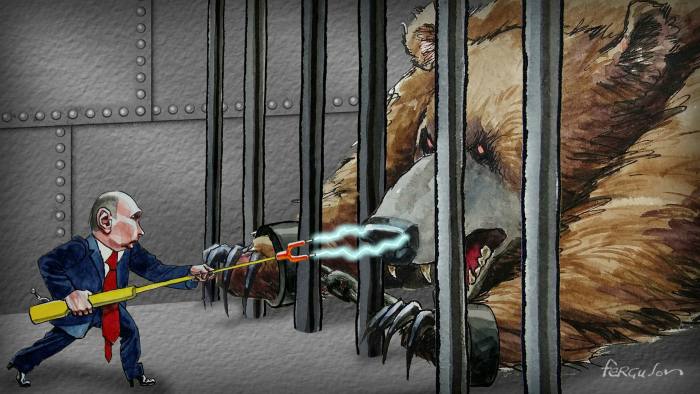
Gideon Rachman: Russia is once again behind an iron curtain
Vladimir Putin is a keen student of Russian history. Last summer, he self-published a long essay, “On the historical unity of Russians and Ukrainians”, that was also a manifesto for war. But, amid all his historical musings, Putin missed one crucial recurring pattern: the role that failed wars have played in bringing about regime change in Russia.
2022-03-09 -
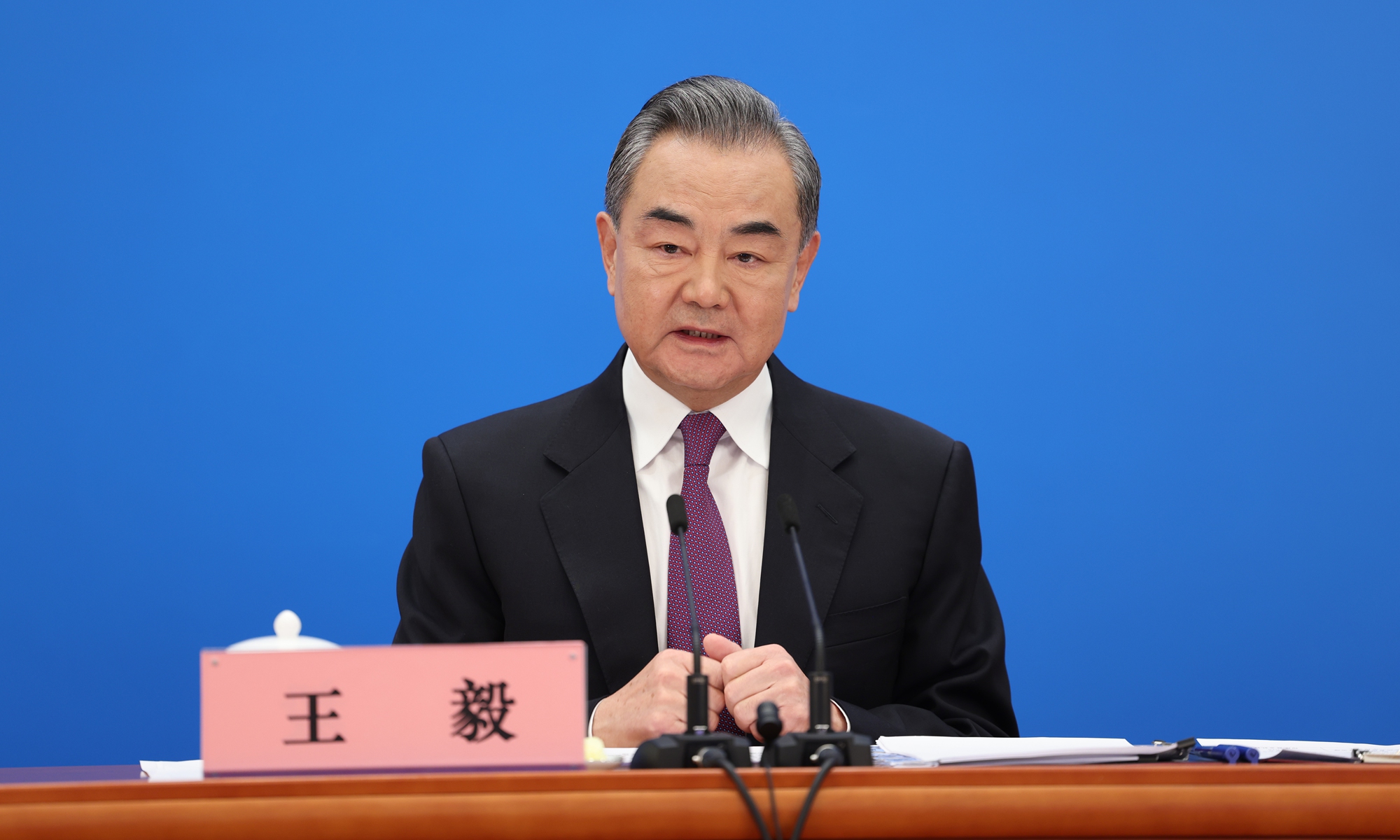
Wang Wen&Xu Tianqi: How Chinese FM debunks West’s China-smearing talking points over Ukraine crisis
The tense situation in Ukraine has been deteriorating since February. Some Western politicians and media outlets, especially those of the US, keep smearing China by propagandizing false information on the Ukraine crisis. On Monday, during a press conference on the sidelines of the two sessions, Chinese State Councilor and Foreign Minister Wang Yi confronted the "traps" set by the West over the Ukraine situation.
2022-03-09 -

Wang Wen&Xu Tianqi: How Chinese FM debunks West’s China-smearing talking points over Ukraine crisis
The tense situation in Ukraine has been deteriorating since February. Some Western politicians and media outlets, especially those of the US, keep smearing China by propagandizing false information on the Ukraine crisis. On Monday, during a press conference on the sidelines of the two sessions, Chinese State Councilor and Foreign Minister Wang Yi confronted the "traps" set by the West over the Ukraine situation.
2022-03-09 -
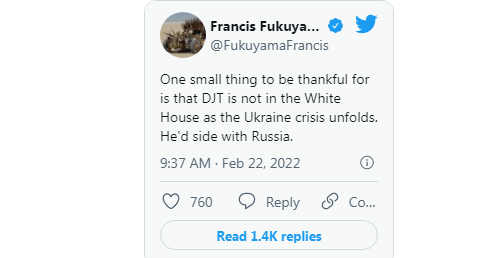
Francis Fukuyama: American Weakness?
In writing about Ukraine, I’ve tried to avoid referring everything back to American domestic politics. This generally feeds a syndrome that Robert Lieber referred to in this journal as “strategic narcissism,” in which Americans believe that everything turns on what American politicians say and do. However, in the current Ukraine crisis, a lot does hinge on perceptions of American power and likely actions, so reference to our trouble politics is in fact merited.
2022-03-09 -

Zamir Ahmed Awan: The Ukraine crisis is a tragedy of the modern world
I believe that the human being is the most precious thing in this universe, everything else serves the human being. Invasions, wars, are total disasters for humanity. In any religion, culture, civilisation, killing is never preached nor appreciated.
2022-03-08 -
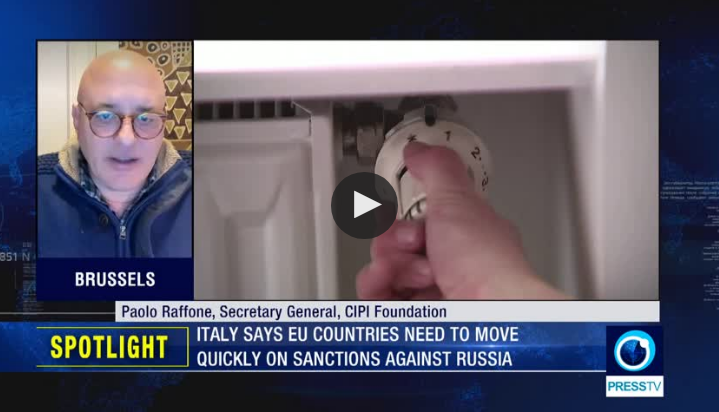
John Ross: Opinions on Sanctions on Russia
The Russian military operation against Ukraine is taking its toll, both on the Russian and Ukrainian side. But there is another toll taking place, and that is the economic toll. There are no ambiguities about how the avalanche of sanctions against Russia is destroying the Russian economy, but what about the economy of European countries, or the US for that matter? John Ross Senior Fellow, Chongyang Institute for Financial Studies LONDON Paolo Raffone Secretary General, CIPI Foundation BRUSSELS
2022-03-08 -

China charts path to a green future
2022-03-08 -

China charts path to a green future
2022-03-08 -
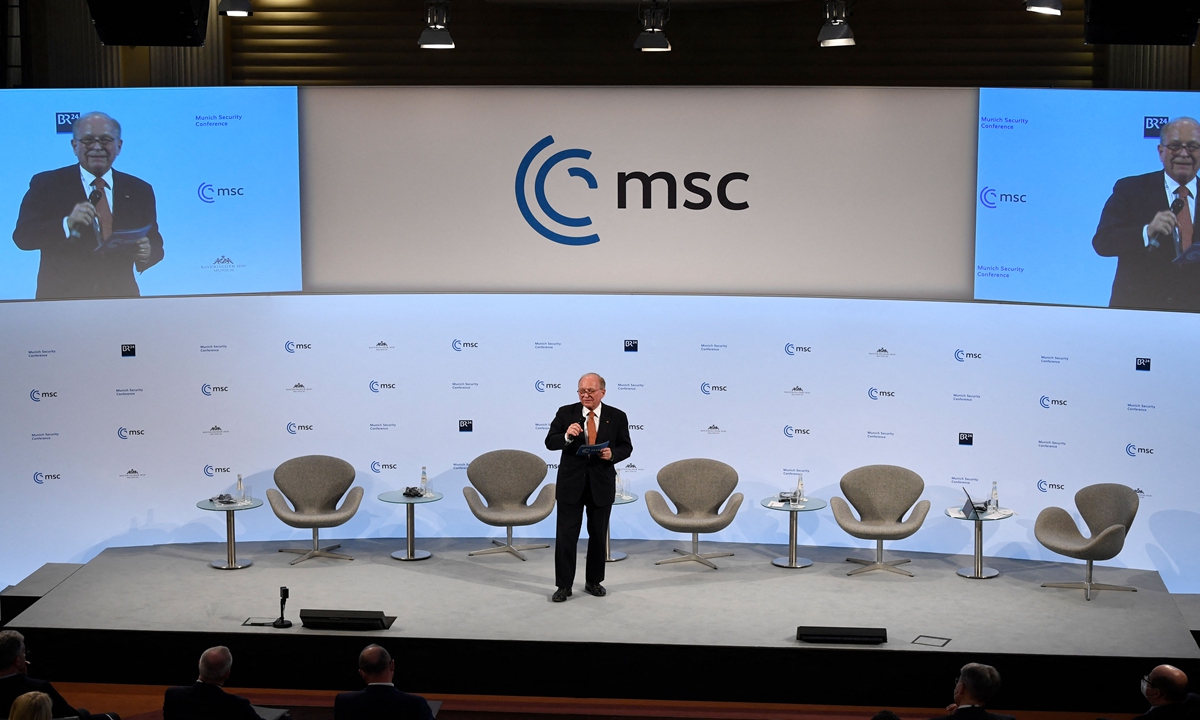
Zhao Minghao: US hardly leads the West out of helplessness, but is in fact the cause
The Munich Security Conference 2022 was held under the shadow of multiple challenges including the Ukraine crisis. The Munich Security Index 2022 shows perceptions of risk that pervade the societies of G7 countries due to the COVID-19 pandemic, geopolitical tensions, domestic political polarization, and rising inequality. As the Munich Security Report 2022 points out, many Western people believe that they are living in a "new era of successive and interconnected disruptions," and there is a growing "collective helplessness."
2022-03-08 -
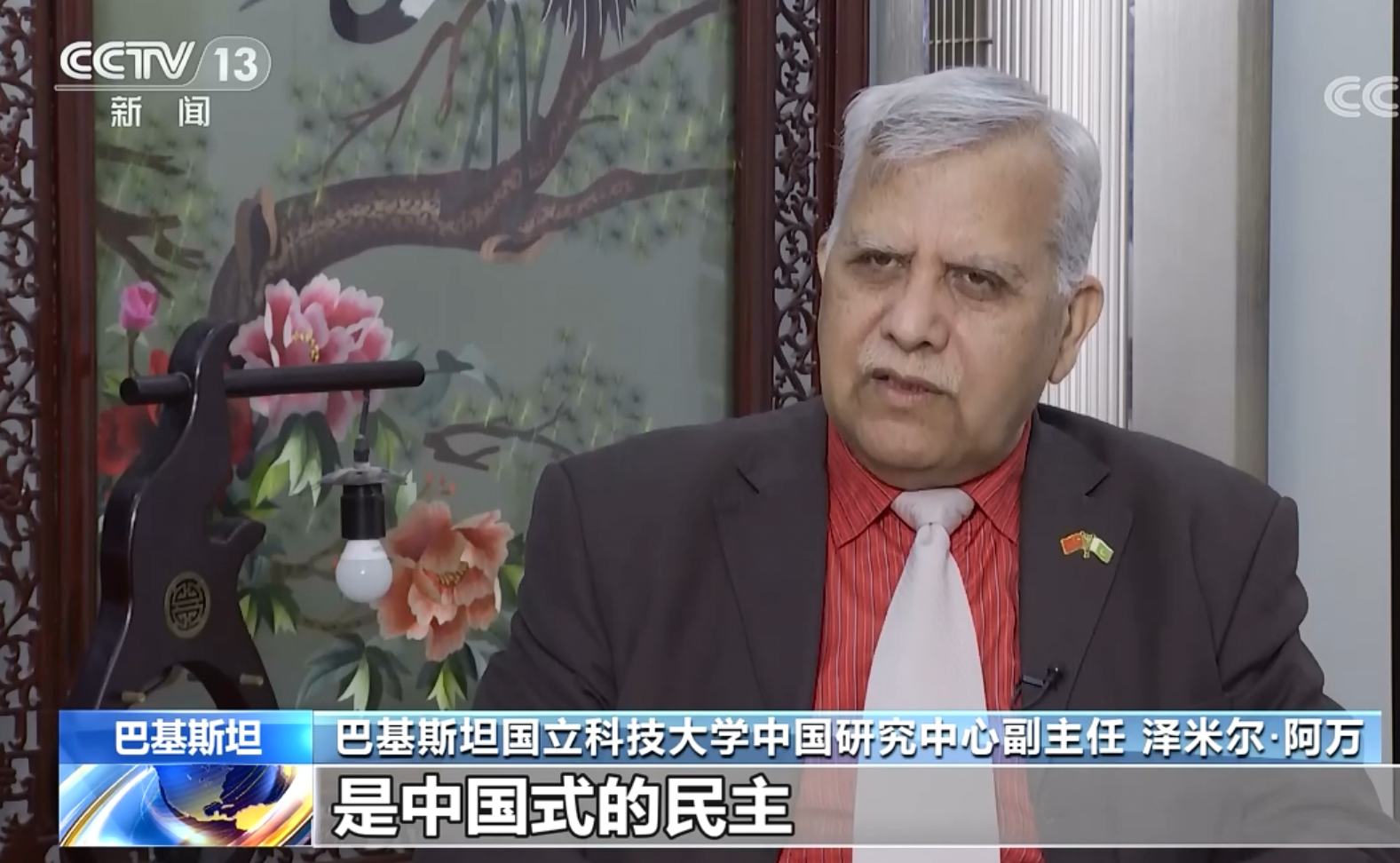
Zamir Ahmed Awan: Chinese style Democracy is real Democracy
2022-03-08 -
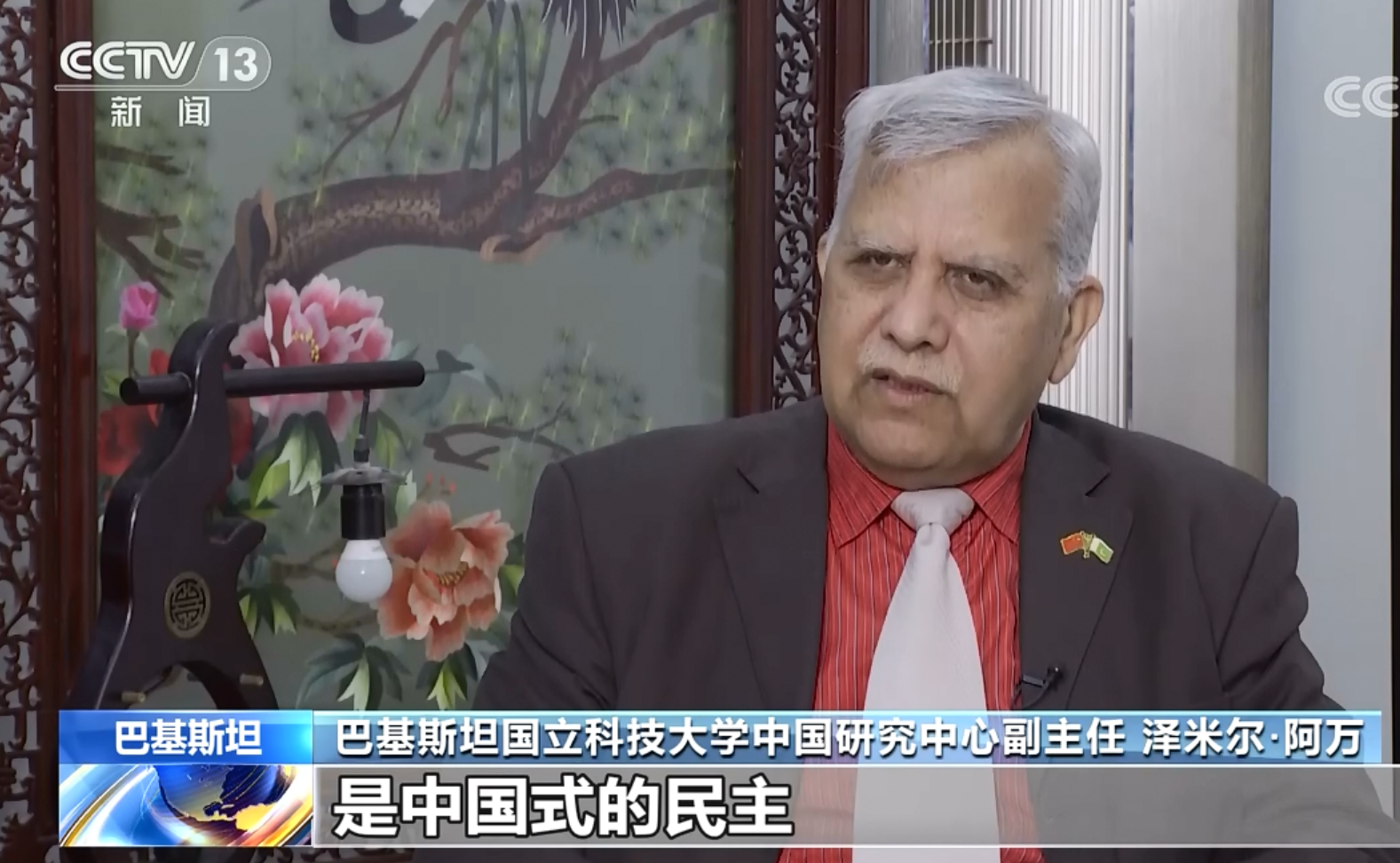
Zamir Ahmed Awan: Chinese style Democracy is real Democracy
2022-03-08 -
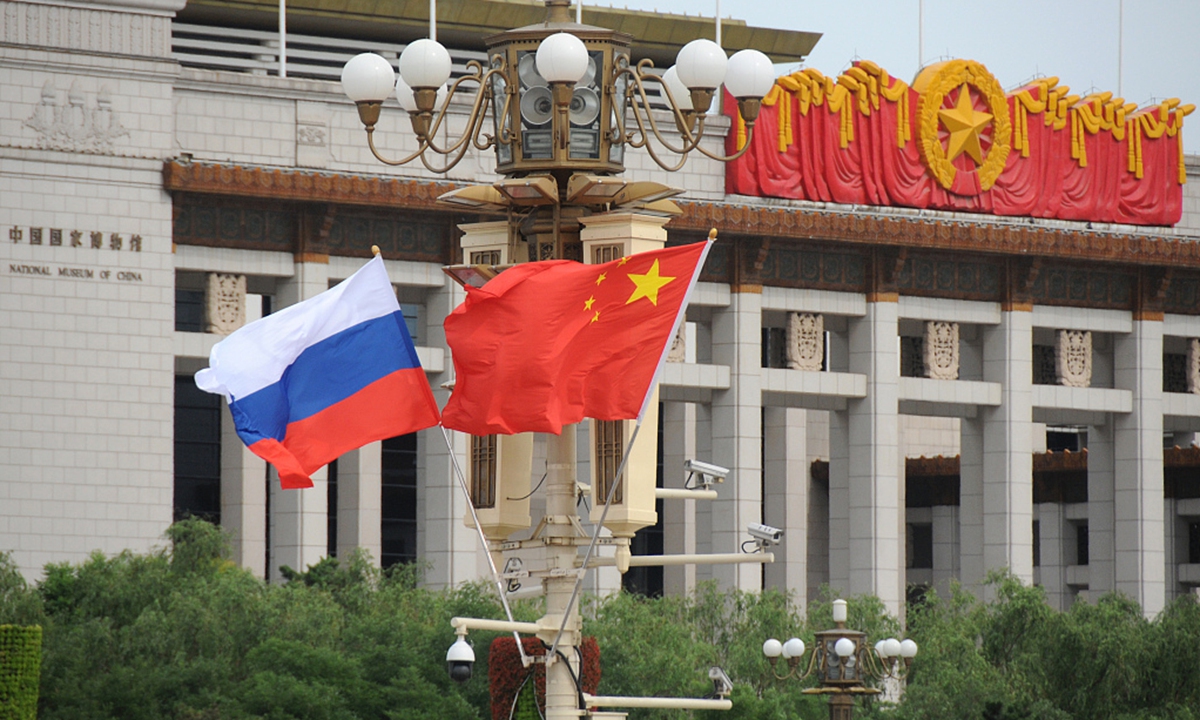
Yuri Tavrovsky: Xi-Putin meeting in Beijing: eye to eye, back to back
Beijing Winter Olympic Games will open on February 4, and a new stage of China-Russia relations will begin. President Xi Jinping and President Vladimir Putin will meet face to face for the first time in two years on the sidelines of a major global sporting event. Of all the Olympic sports, the biathlon is best suited to express the meaning of this meeting.
2022-03-08 -

Zamir Ahmed Awan: The Ukraine crisis is a tragedy of the modern world
I believe that the human being is the most precious thing in this universe, everything else serves the human being. Invasions, wars, are total disasters for humanity. In any religion, culture, civilisation, killing is never preached nor appreciated.
2022-03-08 -
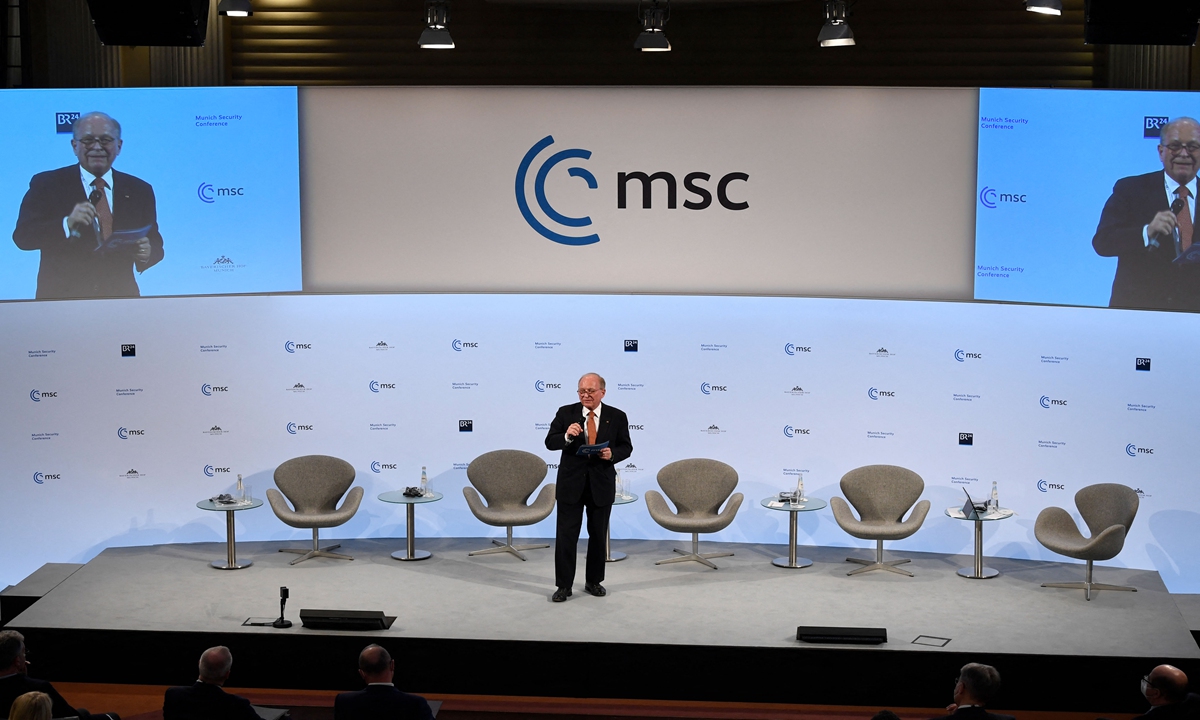
Zhao Minghao: US hardly leads the West out of helplessness, but is in fact the cause
The Munich Security Conference 2022 was held under the shadow of multiple challenges including the Ukraine crisis. The Munich Security Index 2022 shows perceptions of risk that pervade the societies of G7 countries due to the COVID-19 pandemic, geopolitical tensions, domestic political polarization, and rising inequality. As the Munich Security Report 2022 points out, many Western people believe that they are living in a "new era of successive and interconnected disruptions," and there is a growing "collective helplessness."
2022-03-08 -
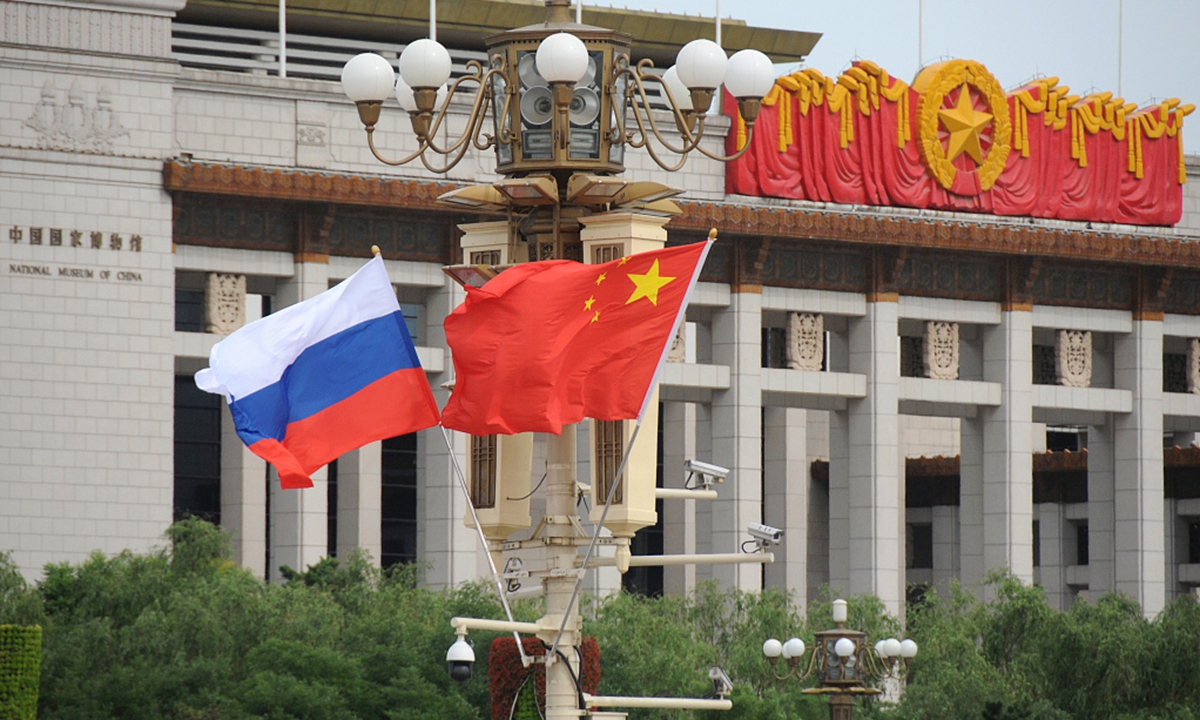
Yuri Tavrovsky: Xi-Putin meeting in Beijing: eye to eye, back to back
Beijing Winter Olympic Games will open on February 4, and a new stage of China-Russia relations will begin. President Xi Jinping and President Vladimir Putin will meet face to face for the first time in two years on the sidelines of a major global sporting event. Of all the Olympic sports, the biathlon is best suited to express the meaning of this meeting.
2022-03-08 -
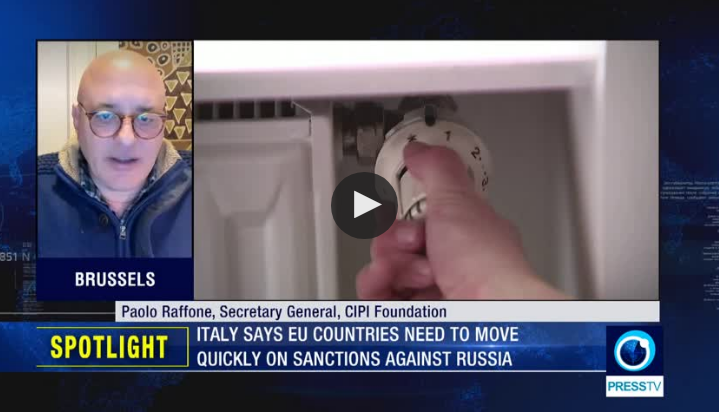
John Ross: Opinions on Sanctions on Russia
The Russian military operation against Ukraine is taking its toll, both on the Russian and Ukrainian side. But there is another toll taking place, and that is the economic toll. There are no ambiguities about how the avalanche of sanctions against Russia is destroying the Russian economy, but what about the economy of European countries, or the US for that matter? John Ross Senior Fellow, Chongyang Institute for Financial Studies LONDON Paolo Raffone Secretary General, CIPI Foundation BRUSSELS
2022-03-08 -
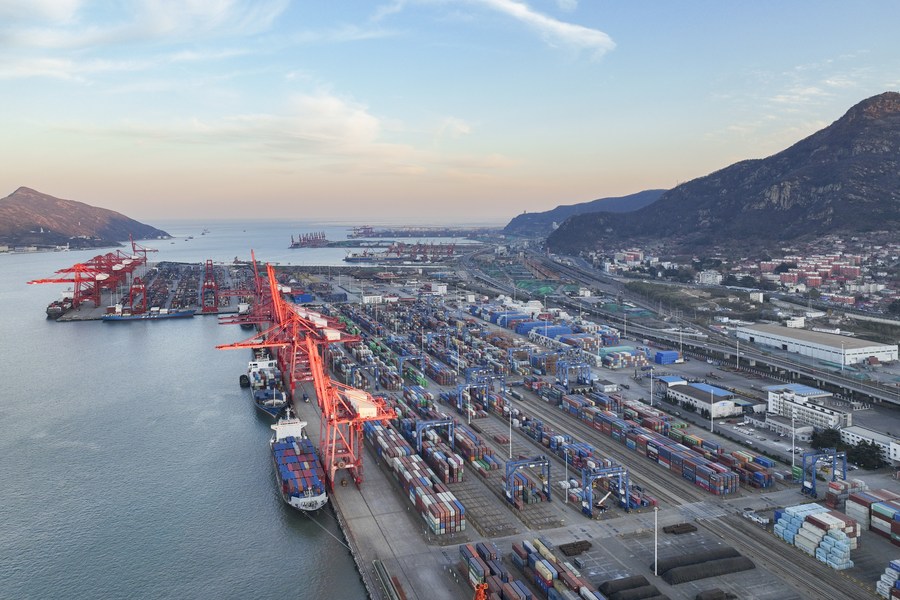
John Ross: China's economic growth, technological upgrades bring dynamic FDI inflows
The rapid growth of the Chinese economy and its technological upgrades have explained the very dynamic inflows of foreign direct investment (FDI) in China, British academic John Ross has said.
2022-03-07 -

Liu Zhiqin: Is China a key motivation for Australia’s A$804 million Antarctica funding boost?
In the past week, since Australia announced an A$804 million (US$578 million) to boost scientific research on Antarctica, its efforts have been framed as part of the ongoing competition for influence with China that stretches from the Indo-Pacific to the frozen continent.
2022-03-07 -
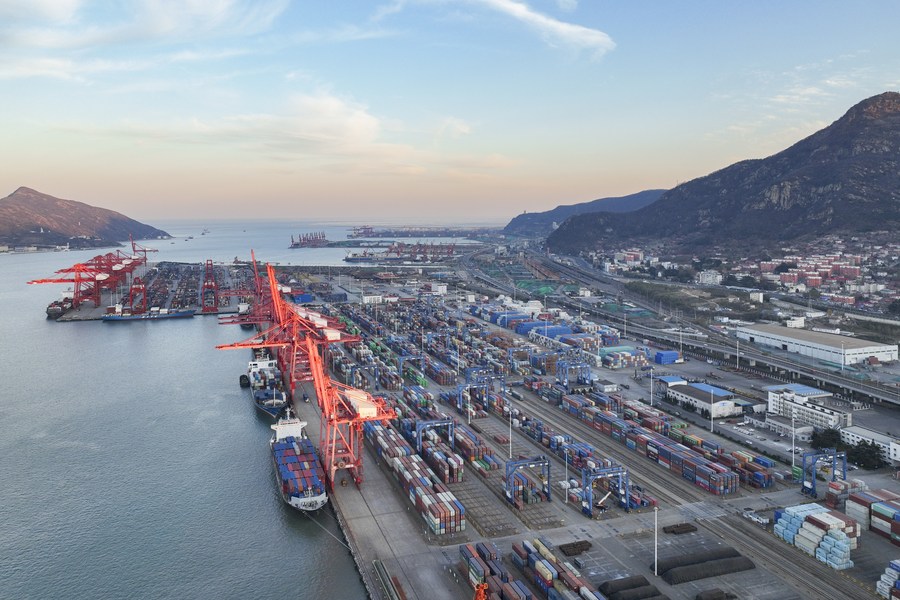
William Jones: China Will Maintain a Steady Course in a Challenging Time
China has begun the annual “two sessions” of its national legislature and top political consulative body in a very unsettled global environment. The Russian military action in Ukraine as well as the massive sanctions regime imposed by the West on Russia, a major producer of the world’s energy supply, has created a challenging environment for any country to make plans for the future. Nevertheless, in his government work report, which traditionally begins the legislative period, Premier Li Keqiang expressed confidence that China would remain on a course of stable development. This is also the year for the convening of the 20th National Congress of the Communist Party of China (CPC) which will determine the leadership team going forward and lay out the blueprint perhaps for the next decade or longer.
2022-03-07 -
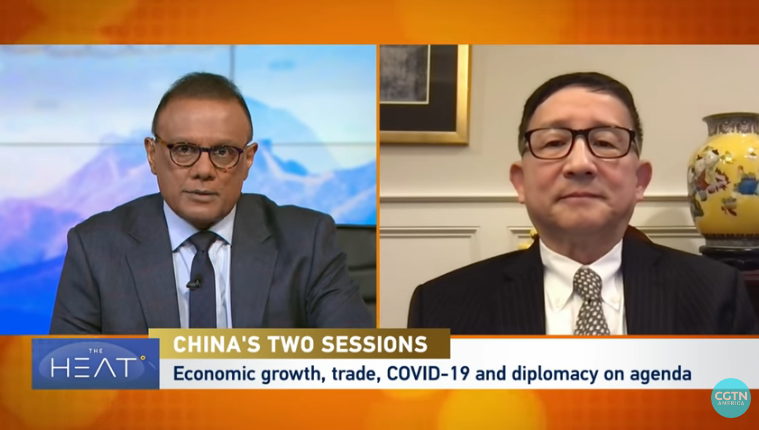
Cheng Li: The Heat: Two Sessions underway
2022-03-07
























































































 京公网安备 11010802037854号
京公网安备 11010802037854号





